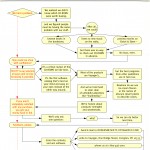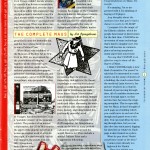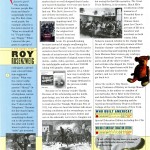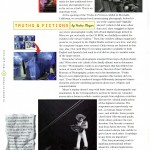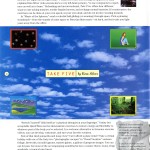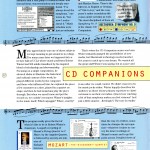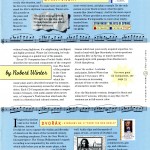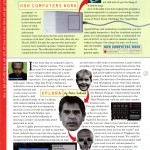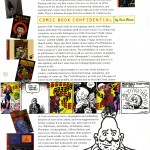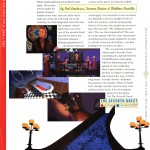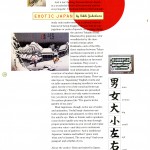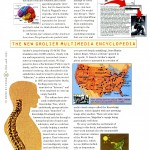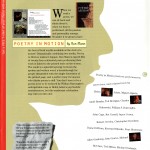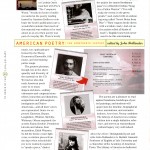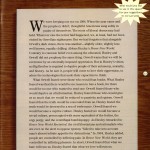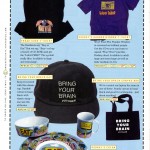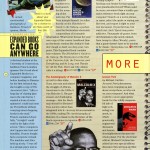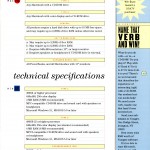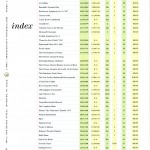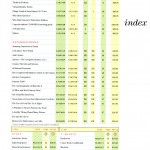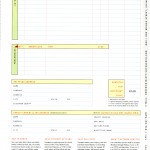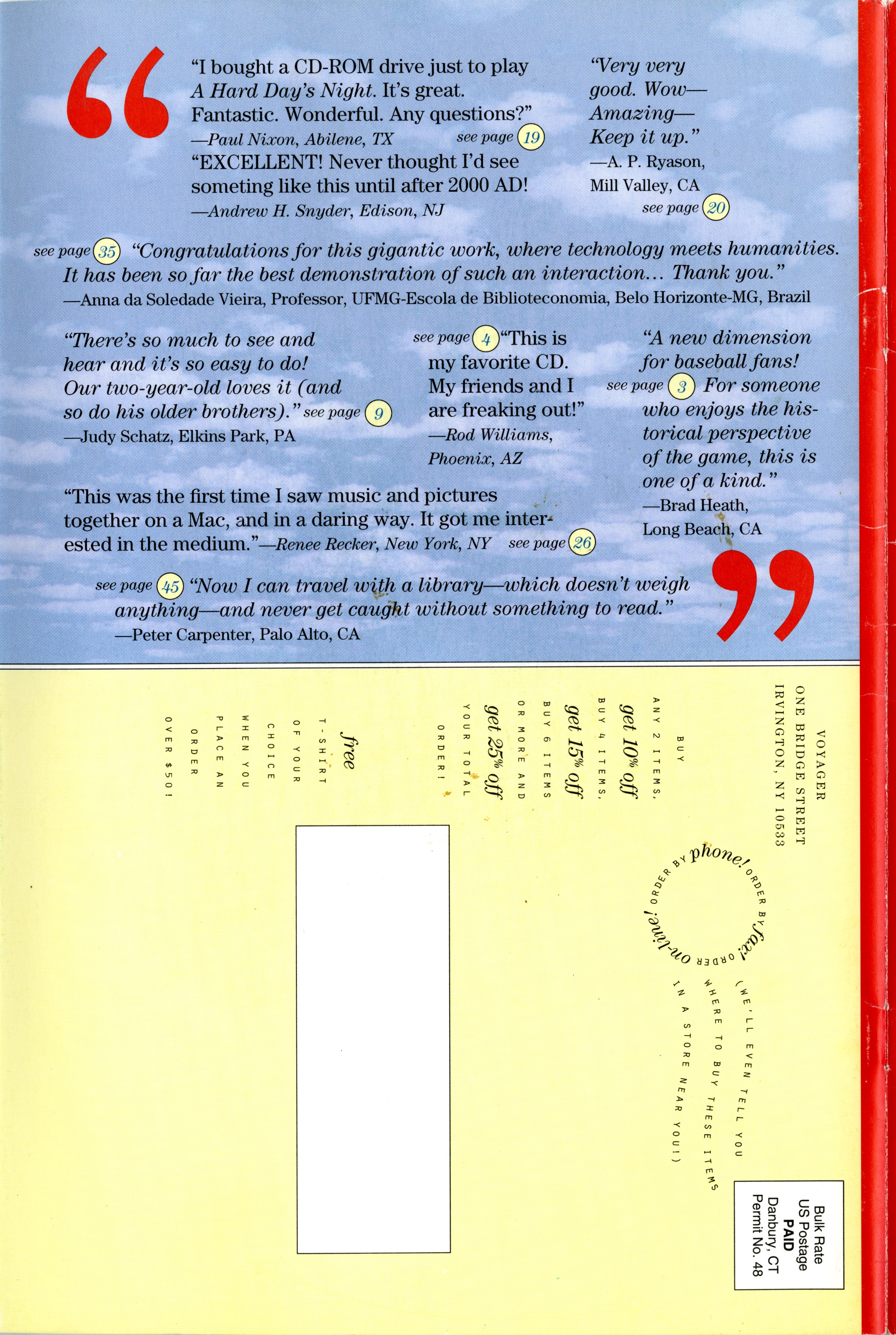Important two-part piece by Melville House publisher, Dennis Johnson
Part I
The furor over Milo Yiannopoulos’s book deal with Simon & Schuster’s Threshold Editions inspires this publisher to ask one question of the disconcerted: Where have you been?
Because this is where American publishing is now—or at least, the fifty percent of it dominated by the so-called “Big Five”—and it’s been there for a long time.
Look at Threshold alone: It’s published Karl Rove, Dick Cheney, Rush Limbaugh, Glenn Beck, and Donald Trump. S&S launched the imprint back in 2006 (with Mary Matalin as its founding editor) when Random House’s conservative Crown imprint (publisher of George Bush) formed an even more conservative sub-imprint, Crown Forum (Ann Coulter, Pat Buchanan), in 2003 … which in turn had been a response to Penguin’s 2002 formation of its conservative Sentinel imprint (Mike Huckabee, Scott Walker).
And then there’s the HarperCollins (Sarah Palin) conservative imprint (yes, I too think that sounds redundant) Broadside Books (Dick Morris), founded in 2010.
You’ll note some of the authors of these imprints, such as George Bush and Dick Cheney, have the blood of hundreds of thousands of people on their hands. Call me crazy, but I think that’s worse than the showboating loutishness of Milo Yiannopoulos. And yet, do you remember any of these books sparking a significant protest?
In fact what criticism there was along the way was countered the same way S&S is countering criticism now. For example, when Crown was almost kind of slightly not really criticized for publishing George Bush, the company countered by saying no no no it would publish anyone, right or left, due to free speech, fighting censorship, the First Amendment, diversity, and, you know, freedom!
It also used the human shield ploy by pointing out that its corporate owner published lots of other authors you wouldn’t want a boycott to deprive you of — such as Barrack Obama and Dr. Seuss!
It’s the modern predicament in a nutshell — the normalization of the most vile nonsense.
In the book business, as in the general economy, it’s the end of a long process that began when privately owned companies like Simon & Schuster (there really was a guy named Simon, you know, and another one named Schuster) started selling out to big corporations, which soon sold out to even bigger international mega-corps in the wild and wooly era of free trade unleashed by Bill Clinton.
In the end, each individual brand became diluted to a thing that exists only to make money, meaning that what they publish is basically random — well-written, badly written, left, right, moral, immoral … doesn’t matter. Just has to make money. In fact, there’s no real brand there anymore, let alone an ideology.
Of course that’s something that’s happened across the sorry landscape of American capitalism, but it’s particularly odd to observe in the business of art-making and speaking truth to power. Ideology is now the former bottom line of centuries of publishing.
In any event, thus, the person at Simon & Schuster who had to decide on whether or not to publish Yiannopoulos — and it did, rest assured, come down to one person greenlighting the project — said to themselves not “I don’t want to do an immoral thing like publish this evil troll,” but “I’d better pretend I have no human agency and instead behave according to the dictates of international-conglomerate-capitalism and buy this book because it will make my employer a lot of money.”
And soon a bunch more people in the S&S food chain will forget where they put their agency, too, and do what they are told and edit the book and copyedit and proof the book and design it and print it and distribute it and sell it. To make their living. To make money.
But in point of fact that first, highly-placed, self-designated apparatchik did have agency. He or she could have said no.
Because that’s what a real publisher does all day, as opposed to what a cog in a corporate machine does — i.e., it’s what Messrs. Simon and Schuster did: They say yes, and they say no. They say, “Yes, I’ll publish this thing because it’s worthy and fits my company and could make the world a better place and yes I think it might make money but more importantly I believe in it”; or they say, “No, I won’t publish this piece of vile dreck even though it would probably make a lot of money because it’s evil and so is its author and I don’t want to support them let alone get in bed with them nor force my staff to do it either nor lie to readers by saying this sort of thing is okay.”
And note: Not publishing vile dreck is not censorship. If you don’t like something, there’s no law that says you nevertheless have to spend your money on publishing it. It’s also not censorship because you haven’t blocked it from being published by anyone else, such as any of the many publishers who love to publish vile dreck, such as Regnery.
But the deal nonetheless went forward at S&S, and the outraged—readers, booksellers, authors, the good-hearted and generally sentient—are trembling in timidity over what in the world to do about it.
This is a common reaction in the book biz — a business of lovers-not-fighters much like the liberal classes in general, which explains how a mercenary cutthroat like Amazon was able to become a monopoly without even breaking a sweat.
It also explains how those outraged by the Yiannopoulos deal have resisted the one glaringly obvious thing that people could do right now, which is the thing that would have the most powerful impact, which is the explosive tool that powered the civil rights movement, which is a boycott. Letters, phone calls, emails, yes, yes, yes, they would make responsible parties at S&S uncomfortable … for a matter of minutes, until they learned to not answer the phone or look at their email and it eventually fades away.
A boycott is the only way to make a statement to entities to which only money has meaning.
Yet people who wouldn’t think twice about boycotting a Trump hotel nor give a thought in the world to the good people working there who are the collateral damage of such a boycott are increasingly firm about why they can’t boycott Simon & Schuster: Because it would hurt all its employees and other authors.
Thus the buck, as it were, stops no where.
Still … the obvious appropriateness of a boycott seems to have nagged at people enough that, after some dithering, a modifcation of the boycott-is-too-mean justification has been reached: People should boycott Simon & Schuster’s bad books … even if, um, they aren’t the kind of books you were going to buy anyway ….
And this is where we’re at, at the dawning of the Trump era.
Look, the battle against Yiannopoulos is a minor skirmish against the kind of penny-ante icon we’re going to come up against again and again in the Trump era, but the encompassing war against Trump — which is, after all, a war against fascism — is going to be a war of attrition, and this is an early, easy round. It’s going to get harder. If people don’t have the stomach or nerve to do the right thing on this one, we’re in big trouble.
Booksellers! Readers! Media! It’s not like there aren’t a million and one other choices out there — from, say, the other fifty percent of American publishing, the indies, university presses, nonprofits, and more, who operate by a discernable and conscientious moral code, be it right, left, or center, and who publish equally fine books as the Big Five.
Regardless, the choice before anyone upset about the Yiannopoulos deal, and for those who say they’re dedicated to resisting Donald Trump, is a simple one: Publishers can say no, and so can you.
Part II
In yet another heart-rending sign of HOW THE LEFT IS PROBABLY GOING TO BLOW THE WAR AGAINST TRUMP, many of the publishing industry’s leading trade organizations including the Authors Guild, the Association of American Publishers, and the American Booksellers Association, have joined together to issue a statement opposing the boycott of Simon and Schuster over the $250,000 book deal between its Threshold Editions imprint and hate speech champion Milo Yiannopoulos for his book, Dangerous.
The statement is issued under the rubric of the National Coalition Against Censorship (NCAC), whose board of directors includes the president and publisher of the children’s division of, eh, Simon and Schuster, and, in the way it’s too snooty to divulge such an obvious conflict of interest, but more importantly in the way it seems to not know the definition of certain words—the sort of thing you’d think groups like the Authors Guild would be good at—as well as in the way it seems to promote self-interest at a time of national crisis, the statement is, in a word, stupid.
More specifically, it’s stupid in the way it seems to willfully conflate the idea of protest with the act of censorship (an example of the rather treacherous kind of false equivalency beloved of the right and lazy media these days), which is what makes it hard to see the statement as anything but self-serving.
That impression is compounded by the fact that, as accommodationist statements always are, it’s a tortured affair that winds up sounding like it’s trying to pull a fast one, which indeed it is: “Readers are of course free…” it generously declares, “to urge a boycott.” However if they do, it notes ominously, it “will have a chilling effect on authors and publishers.” What’s more, it adds threateningly, a boycott would “undermine intellectual freedom and harm readers and writers.”
That’s ludicrous, of course — I mean, who’s censoring who? The statement is in itself censorious, saying that pretty much any protest of Simon and Schuster will have evil ramifications, especially a boycott. And given the long and honored history of boycotting in America—from the days of our very foundation with the Boston Tea Party to the long haul of the civil rights movement—that’s particularly repugnant, not to mention anti-democratic.
But where the NCAC proclamation is really stupid is this: Is this really where you want to make a stand, NCAC signatories? Really? In the dawning days of the Trump era, you want to defend a white nationalist, an actual fascist, and support the effort to give him wider broadcast by a member of your club? Really? These are desperate times — is that not clear? — and this is where you’re going to draw the line?
Apparently, the answer is yes — NCAC Executive Director Joan Bertin is out and about vehemently defending the statement. In an interview with PW, she says, “Endorsing the right to express offensive ideas is not equivalent to endorsing the ideas themselves.”
But of course, by publishing Yiannopoulos and helping him spread the word to a wider audience, that’s exactly what S&S is doing. And it’s another nasty false equivalency to say that criticism of the deal is threatening Simon and Schuster’s “right to publish,” or denying Yiannopoulos the right to express himself. He’s got his bully pulpit as a journalist at Breitbart, for one thing, and there are dozens of right-wing publishers who would be happy to publish his book. No, the only people having their free speech threatened are those protesting Simon and Schuster’s broadcasting of Yiannopoulos’ vile ideas. And in consistently obfuscating that, and in going forward with its full-scale broadcasting of those ideas, S&S is indeed essentially endorsing them. I mean, despite the fact that the NSAC statement uses words like “noxious” to define Yiannopoulos’ spoutings and Bertin admits they’re “offensive,” are we nonetheless to think that S&S doesn’t stand behind what it publishes? Why, that would mean they’re only in it for the, um, money?
In any event, a growing crowd of independents in the industry, at least, are saying enough. Chicago Review of Books editor Adam Morgan announced early on that he’s boycotting Simon and Schuster by stopping coverage of any of its books because of the deal with Yiannopoulos, whom he calls “a clickbait grifter” who “peddles hate speech for profit.”
And just yesterday, one of the country’s leading indie booksellers, San Francisco’s Booksmith, announced that it felt the deal “crosses a line by promoting hate speech & bullying.” As a result, the bookseller announced on its website,
Booksmith is committed to the following, effective immediately:
We will not be stocking or special ordering Dangerous or anything else from Threshold Editions. No royalty revenue will come from Booksmith.
Booksmith will reduce our orders with Threshold’s parent company Simon & Schuster by 50% in order to communicate pressure to the corporation as a whole. While we respect Simon’s decision to publish any book, we reserve the right to allocate our discretionary inventory dollars with publishers who act with ethical & moral standards consistent with our own.
While we are not enacting a sweeping boycott of all S&S titles, for the foreseeable future, 40% of all S&S sales(which is to say all of our profit) will be turned right around and donated to the ACLU.
That’s one major indie bookseller, one major literary magazine, and, with Melville House, one indie publisher stepping up to oppose this deal.
This is, indeed, a moment for independents to step up, as the major players in the industry seem to have circled the wagons in a knee-jerk response to criticism and a threat to their ability to make money any way they want.
But this could be a defining moment in the culture, let alone the industry as we sail into the Trump wars: Who’s next to say the NCAC statement is shameful, and Simon and Schuster should be boycotted?


